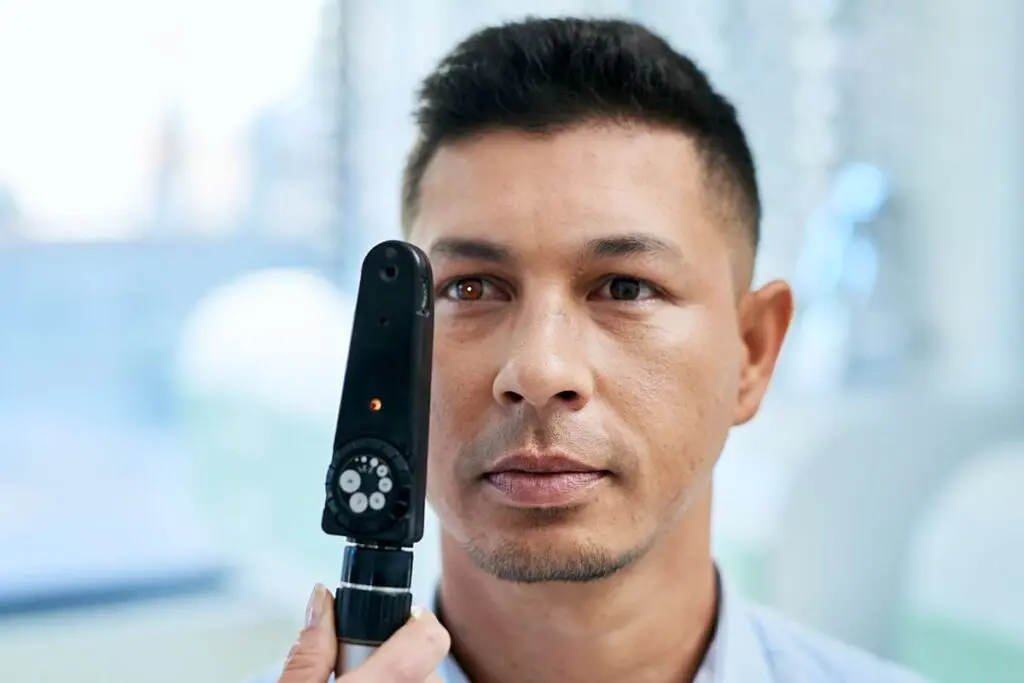Before an individual can operate a commercial motor vehicle (CMV), they must obtain a DOT certification—a medical certification that confirms a driver’s physical, mental, and emotional fitness to operate a CMV. The certification offers several advantages, such as ensuring safer roads and granting drivers access to jobs in the trucking industry.
In this article, we’ll explore what a DOT certification is, how to obtain one, and tips for maintaining and renewing DOT certification.
Table of Contents
What is DOT Certification?
The Department of Transportation (DOT) certification is a medical certification that demonstrates a driver’s physical, mental, and emotional fitness to operate a CMV.
The certification is issued by the Federal Motor Safety Carrier Safety Administration (FMCSA) following a physical examination by an FMCSA-approved medical examiner.
The DOT medical certificate is necessary for individuals operating safety-sensitive driving equipment, like a truck or bus. Typically, interstate drivers need to undergo a physical exam with an FMCSA-certified medical examiner, while intrastate drivers must have a physical with a state-approved examiner.
Meaning of DOT Certification
The term “DOT certified” means that an individual has been confirmed by a licensed medical examiner as healthy enough to safely perform the demands of operating a CMV.
A DOT certificate is not required by all drivers. Drivers who require a DOT certification must meet the following criteria:
- Are engaged in interstate commerce or has a Gross Vehicle Weight Rating (GVWR) of more than 10,000 pounds.
- Transport hazardous materials.
- Use vehicles that carry more than 15 occupants (8 if the driver is a paid employee).
The certification – also known as a DOT medical card – allows a driver to operate a CMV for two years, provided they don’t have a physical or mental condition that requires monitoring.
DOT Certification vs. Other Certifications
A DOT certification should not be confused with a Skill Performance Evaluation (SPE) Certificate Program. The SPE Program is a DOT program for CMV drivers with missing or impaired limbs who drive in interstate commerce. The certification permits impacted drivers to drive across state lines if they have been fitted with a prosthetic device and can demonstrate the ability to drive a CMV safely.
The SPE certification is issued following the successful completion of a driving test.
How to Get DOT Certification

To obtain a DOT certification, individuals must undergo a physical examination by a licensed medical examiner listed on the FMCSA National Registry.
Drivers can either find an examiner local to them or be referred to a medical examiner by their employer.
If the individual passes the DOT physical, they will be issued a DOT Medical Examiner’s Certificate (MEC). A DOT physical exam is valid for up to 24 months, and the medical examiner keeps the MEC on file for three years.
Results are shared with the FMCSA regardless of whether the driver passes or fails a DOT physical.
To ensure successful certification, examinees should gather as much information as possible, including:
- Current documents detailing medical history and any medications (prescription and over the counter).
- A valid form of identification.
- Commercial learner permit or license.
- Records of recent medical visits.
- Contact information for their primary care provider and specialist(s).
- Recent bloodwork or lab results.
- A signed letter from a physician stating they can perform tasks, including driving, without restrictions.
To avoid potential missteps during the physical examination, examinees should avoid alcohol for at least 24 hours before the exam and avoid taking any drug (legal or prescription) that could interfere with exam results.
Requirements for DOT Certification
After completing a DOT physical exam, individuals must follow their state’s guidelines for submitting their DOT medical certification. The medical examiner will provide the driver with a DOT medical card/MEC/certificate, which must be submitted to the state’s DMV office within the timeframe specified by the DMV. Any delay in submission can affect a driver’s medical certification status and ability to operate a CMV legally.
The certification will then be added to the driver’s DMV record.
DOT Physical Exam
A DOT physical exam is conducted by an FMCSA-certified medical examiner. During the assessment, the professional will evaluate the following:
- Vision
- Hearing
- Blood pressure and heart rate
And perform:
- A DOT drug screen or test.
- Physical examination (eyes, skin, general appearance, lung and chest function, neurological indicators, limbs, etc.)
The examiner will also review a driver’s medical history, tobacco, alcohol, drug use, and current health problems. DOT psychological and DOT physical ability tests may also be ordered.
Finding a Certified Examiner
DOT physicals are performed by FMCSA-certified medical examiners. Acuity has a network of more than 11,000 providers, including certified medical examiners who can perform DOT physicals and issue a DOT certification. Drivers can also search for a certified medical examiner using the FMCSA National Registry.
Maintaining and Renewing DOT Certification

Most drivers are issued a DOT certification for 48 months. However, drivers with health conditions identified during the DOT physical may need to renew every 12 months and undergo periodic health exams to ensure they are still fit for duty. Conditions that require ongoing monitoring include diabetes, high blood pressure, and sleep apnea.
Each state has different renewal criteria.
Renewal Process
If a DOT certificate is expiring, a driver must have a new DOT physical examination and obtain a new DOT medical examiner’s certificate. The certificate must then be submitted to the DMV.
Failure to renew on time can result in CMV driving privileges being canceled.
FAQs About DOT Certification

What is the meaning of DOT certified?
A person who is DOT certified is one who has undergone and passed a DOT physical examination. The exam ensures that the driver is physically, mentally, and emotionally fit to operate a commercial motor vehicle, such as a truck or bus.
DOT medical certification is required by law for CMV drivers who will operate a vehicle that:
• Is engaged in interstate commerce or has a Gross Vehicle Weight Rating (GVWR) of over 10,000 pounds.
• Transports hazardous materials.
• Can carry more than 15 occupants (8 if the driver is a paid employee)
What is the difference between DOT and SAE certification?
A DOT certification should not be mistaken for a Skill Performance Evaluation (SPE) Certificate Program. The SPE Program, administered by the DOT, is intended for CMV drivers with either missing or impaired limbs who operate in interstate commerce. This certification allows affected drivers to travel across state borders provided they have been equipped with a prosthetic device and can display the proficiency to operate a CMV safely. The issuance of the SPE certification follows the successful completion of a driving assessment.
What happens during a DOT physical
During a DOT physical, an FMCSA-certified medical examiner assesses various aspects of a commercial driver’s health and physical abilities to ensure they are fit for duty, including vitals and physical appearance. A DOT drug test is also required. In addition, the examiner will inquire about the driver’s medical history.
Ensuring Compliance and Safety with DOT Certification
DOT certification helps ensure the safety of our highways. A DOT certificate is necessary for specific drivers to acquire a CMV license, providing the public with assurance that they can operate these vehicles safely and responsibly. Following the steps and best practices outlined in this article can help drivers obtain and maintain their certification.
Learn more about Acuity’s FMCSA-compliant DOT physicals. Our services are available whenever and wherever they are needed, 24/7.Contact Acuity today to learn more.
